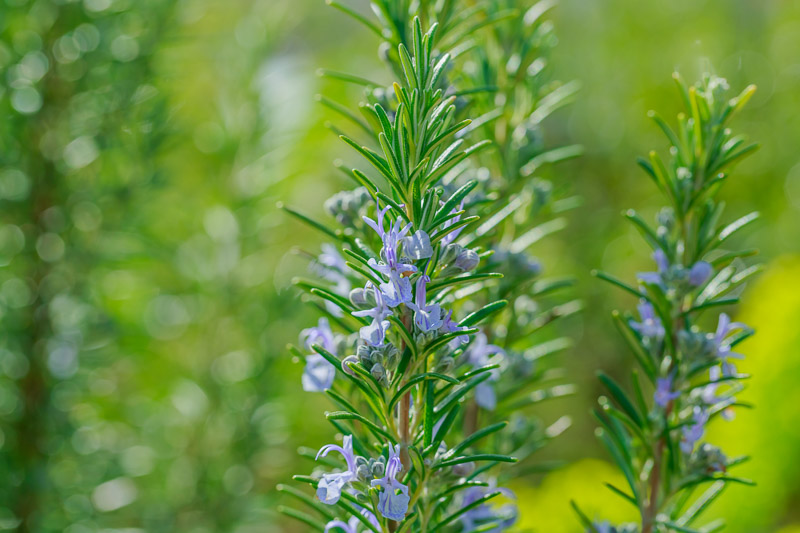Rosmarinus
Rosemary is an evergreen herb native to the Mediterranean region, where it has been used for culinary and medicinal purposes for thousands of years. It is a woody shrub with fragrant, needle-like leaves that are terrific as a seasoning in cooking or as a natural remedy for various health conditions.
The scientific name for Rosemary is Rosmarinus officinalis, a member of the mint family. The herb has a strong, pungent aroma and a warm, slightly bitter taste, making it a popular ingredient in many dishes, especially those featuring Mediterranean or Italian cuisine. The leaves and stems of the plant are used to make essential oil, commonly used in aromatherapy and natural beauty products.
In terms of health benefits, Rosemary has been shown to have antioxidant, anti-inflammatory, and antiseptic properties. It has been used to improve digestion, boost the immune system, and alleviate pain and headaches. The herb has also been found to have a calming effect on the mind and body, making it a beneficial ingredient in stress relief and sleep-promoting products.
Rosemary is a versatile herb growing well in many gardens and landscapes. It is often used as a companion plant for other herbs and vegetables, as it can help to improve their growth and health. Common companion plants include lavender, thyme, cabbage, carrots, beans, sage, and tomatoes.
It is important to note that while Rosemary can be a beneficial companion plant for many herbs and vegetables, it can also release chemicals that inhibit the growth of other plants. As such, it is important to be mindful of the plants you grow near Rosemary and to give them enough space to thrive.
Overall, Rosemary is a versatile and valuable herb with a long history of use in cooking and medicine. Whether used as a seasoning in your favorite dish, a key ingredient in a natural beauty product, or a remedy for various health conditions, Rosemary is an herb that is sure to leave a lasting impression.

